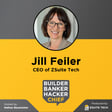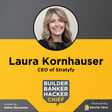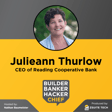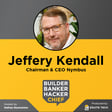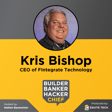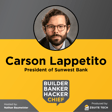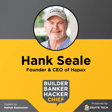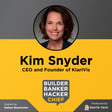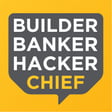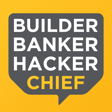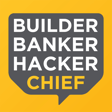
Nicky Senyard – Leading from your family of origin, electric fences, and the importance of escape | Episode 6
Welcome to episode six of Builder, Banker, Hacker, Chief! Joining me today is Nicky Senyard, CEO and founder of Fintel Connect, a partner marketing agency for banks, credit unions, and fintechs.
On this show, I’m unpacking the stories, decisions, and influences that make people successful leaders. Nicky charted her path to leadership using hard-won experience and a deep trust for her own intuition. Her willingness to be uncomfortable and take on big risks has set her and her businesses far apart from the competition.
My name is Nathan Baumeister; I am the Co-founder and CEO of ZSuite Tech and the host of this podcast.
Growing up in Brisbane, Australia before the internet, Nicky easily have settled for a life of safety and security, close to family and familiar surroundings. Instead she threw herself into a public relations career and moved across the globe to London, where she took over the helm of an existing PR firm. Nicky then built and sold an affiliate marketing business after capturing 85% of the market. At that point she could have chosen to advise other companies and invest from the sidelines. But her passion and curiosity led her to found and lead another company, this time in the fintech space.
Nicky loves developing long-term relationships with her employees and helping each person unlock their unique superpower. For her, commercial success requires leaders to be constantly uncomfortable, but it doesn’t need to come at the cost of heart and empathy.
Nicky Senyard is a rare voice in the fintech space and I believe that her story will inspire more people to embrace the risks of leadership without the need to figure everything out in advance.
Here is my conversation with Nicky Senyard.
Resources:
Nicky’s book recommendations:
The E-Myth Revisited
The 7 Habits of Highly Effective People
Connect:
